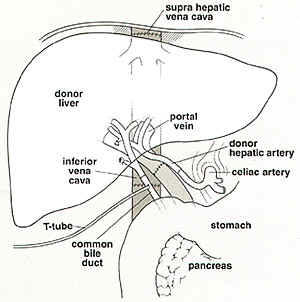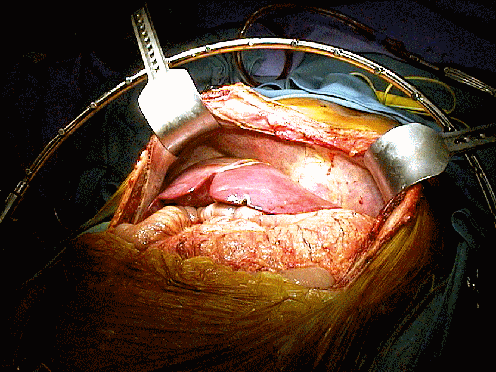The Liver
When asked by my sister-in-law to write about the liver the question was how to best describe it in simple terms while still getting across its function. There have been whole textbooks written on just the liver, and for those of you who want in depth medical knowledge I recommend those texts or simpler ones to you according to how deep you wish to delve into the fascinations and mysteries of the liver. Instead I am going to give you a very brief synopsis, a little like describing a car as a covered wagon with four wheels, a steering wheel and an engine, and I will tell you the basic functions of this very complex organ.
The liver is a fairly large organ that, (apart from a few rare exceptions of situs inversus), consistently lies in the right upper part of the abdomen. From front on it has a roughly triangular shape, in the same way that cars have a roughly rectangular shape from top view. It stretches from the right upper abdomen across the mid line to halfway across the left upper abdomen (left lobe) and from the right upper abdomen to halfway down the flank on the right (right lobe).

Above the liver sits the right diaphragm and the right lung, and below the liver is the intestines. The gall bladder nestles directly below the liver and is attached to it. The gall bladder stores bile from the liver to be squirted into the first part of the small bowel (duodenum) when fat enters the intestine, to help emulsify the fat for absorption, like detergent emulsifying fat in your dish washing water.

[This is a picture of a new liver]
The liver is fed by an arterial system coming from the heart and carrying oxygen. It has a vein system taking blood back to the heart, and it has a vein system taking blood from the intestines to the liver so that all that food you had in your last meal can be processed by the liver before going into general circulation through your body.
The liver’s main job is as a processing unit. It takes food that has been absorbed from your small bowel and makes it ready for utilisation by the tissues in the rest of your body. This also includes altering and removing many of the toxins that come into your body. (Your kidneys, bowel, and skin also dispose of toxins.)
The liver is packed with various enzymes that are continuously employed in the alteration and destruction of not just ingested toxins but also toxins that are produced in the body through normal daily living. If liver failure occurs, these toxins build up in the circulation and eventually pass into the brain, where they bind to specific receptors producing confusion and drowsiness.
It helps with disposing of bilirubin, an orange-yellow breakdown product of red cells that is toxic in large quantities in your body, and when in excess causes the yellow jaundice. It excretes bilirubin into the small bowel so that bowel bacteria can change it into the safe green coloured biliverdin.
The liver acts as a store house for, among other things, glucose (needed by your brain for normal energy usage) stored as glycogen; and vitamins such as vitamin B12.
Your liver helps with the organisation of cholesterol. Cholesterol is essential for your body, but causes problems when in excess. Cholesterol is the base molecule for hormones such as oestrogen, testosterone, and cortisol - to name a few of the more commonly recognised ones. It is also the base for bile acids that are used to emulsify fat in your small bowel so that fat, and fat soluble vitamins such as vitamins E and K, can be absorbed.
The liver also produces many proteins. In particular the protein albumin is essential for carrying other molecules (and drugs) attached to it, and for keeping fluid in the blood vessels. Not having enough albumin in the body is one of the reasons why people can get swelling of the legs from fluid moving out of the blood stream and into the surrounding tissue.
The liver assists in the maintenance of "haemostasis" or ability of your blood to clot normally. A deranged liver will cause your blood to become too thin so that you bleed easily.
As I mentioned at the start the liver is a very complex organ. I hope that this very brief summary will provide you with a little more insight into the wonder and miracle of the organ in your body known as the liver.
Dr. Fraser Burling
BHB, MBChB (Auckland, New Zealand)
Return to TOP
Key Websites
|
You can read more about key liver functions on the Internet at the University of Chicago Medical Center: Section of Transplant Surgery, which, outlines the functions of the liver. We would remind you that if you feel you have a problem with your liver, please see a medical doctor, preferably a Liver Specialist (hepatologist) as soon as possible. Return to TOP
|

